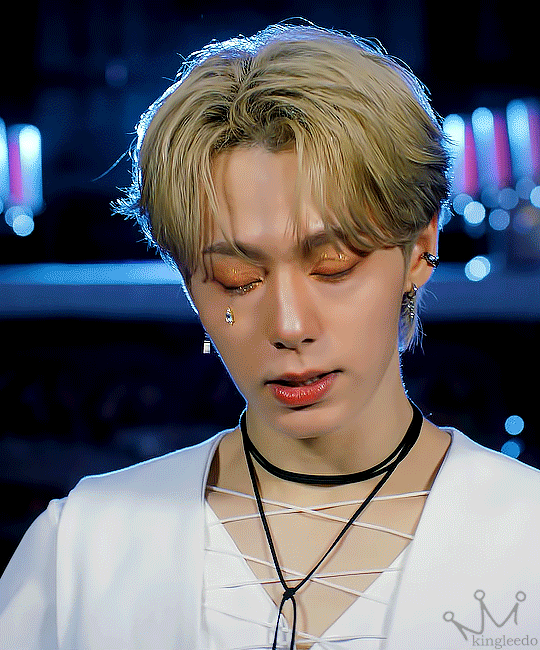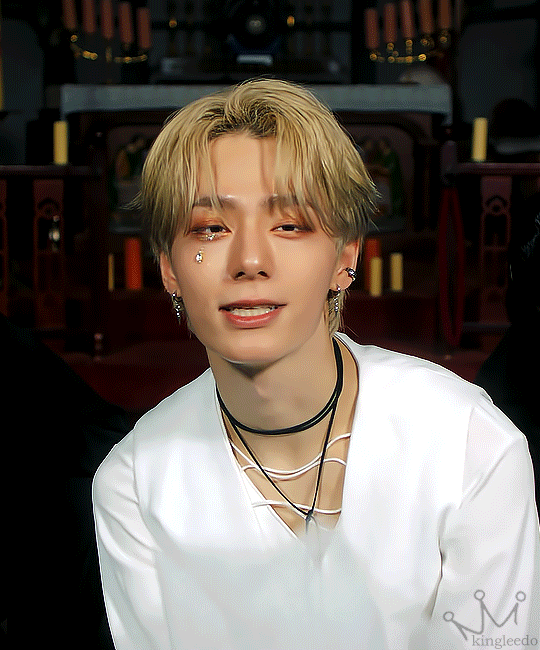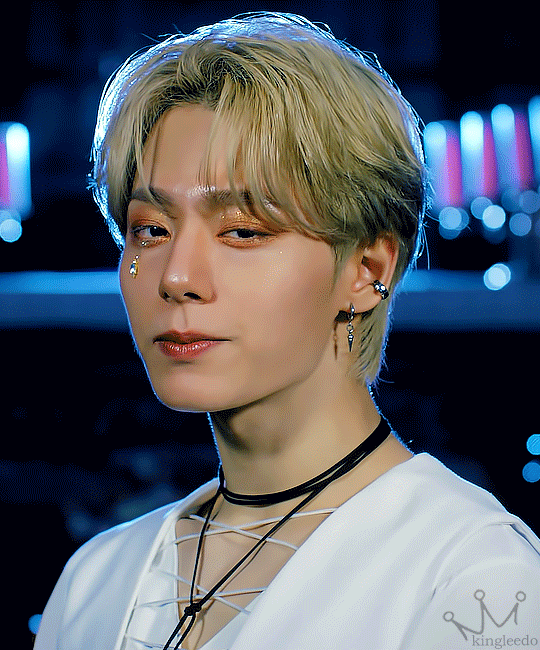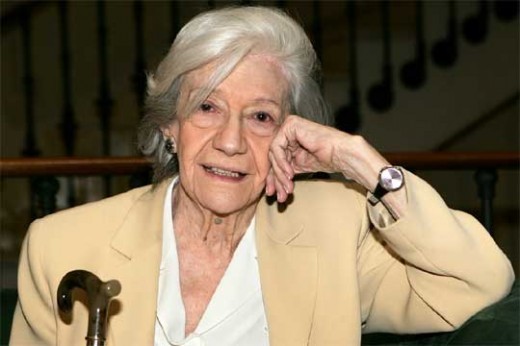#I HAVE LOST MY MIND LIKE CMPLETELY
Text



⚠️ - "OP's soul left her body before she could caption this."
#hwanwoong#foroneus#ultkpop#malesgroupnet#kpopccc#idolnexusedit#lucieblr#foraddy#tuserchrissy#useroro#eyestrain#long post#kngld.edits#woong#DONT TALK TO ME OR MY FOREVER BIAS WRECKER#I HAVE LOST MY MIND LIKE CMPLETELY#its owned by woong now#i giffed this in between screaming and crying like I SWEAR#i need an exorcist because i think some kind of substance is leaving my body when looking at him#WHO THE HELL ALLOWED THIS#IF YOU ARE NOT STANNING ONEUS HONESTLY IDK WHAT ARE YOU WAITING FOR
152 notes
·
View notes
Text
expand your literature friday nº1
Author: Ana María Matute
Notable works: Pequeño Teatro (1954), Luciérnagas, eng. Fireflies (1955), Los Hijos Muertos, eng. The Dead Sons (1958), Olvidado Rey Gudú, eng. Forgotten King Gudú (1996).
Obviously, whole theses and analysis could be written about this amazing writer and her work. There will be loads of thing about Los Abel that I would love you guys to know, but that I can’t just include in a Tumblr post. Hopefully, this will be interesting enough to you!
*WARNING. The book I’m going to be talking about has never been translated, so all the quotes and excerpts below have been translated by me.
So, without further ado, proceed and enjoy!
Brief Introduction

Ana María Matute (1925 - 2014) was a Spanish writer and member of the Real Academia Española, which, summing it up, is the insttution that regulates the Spanish language in Spain. It’s a great honor to be a member of the RAE, and she was the third woman in the history of this institution to be conceded a seat in it. She is considered one of the most personal and raw voices of the 20th century in Spanish literature, and one of the best posguerra (which is the period following the Spanish Civil War) novelists. She wrote novels, short stories, children tales and essays. She was considered in 1976 for the Nobel Literature Prize and won numerous literature prices, among which was the Premio Cervantes, the most prestigious literature prize in the Spanish language.
Matute was a professor at university, and she traveled to many cities to give lectures, especially to the US. In her speeches, she talks about emotional changes, the constant changes of the human being and how innocence is never cmpletely lost. She said that although her body was old, her heart was still young.
Here is a small article by The New York Times, published some days after her death in 2014, that contains some more info about her biography and career.
Style
Matute deals with many political, social and moral aspects of Spain during the post-war period. Her prose is lyrical and practical, and she incorporates techniques associated with modernism and surrealism. However, Matute is considered a realist writer. Many of her books deal with the period of life ranging from childhood to adolescence to adulthood.
Matute uses, as a primary resource, pessimism, which, in her novels, often manifests in the form of alienation, hypocrisy, demoralization and malice. About her work, it is said that although the arguments of each of her novels are independent, they are all united by the general theme of Civil War and the portrait of a society dominated by materialism and self-interest.
Also, during the 1940s in Spain, a new literary aesthetic, which came to be known with the name of tremendismo, was born. The main aesthetic features of tremendismo revolve around the experiences of authors during the Civil War, and the misery and insecurity that were characteristic of post-war Spain. Tremendismo is heavily based on pessimistic, determinist and fatalist philosophies; it shows the darkest aspects of life, such as failure and death, and relates them to existentialism. Protagonists of novels belonging to tremendismo are usually marginal beings from the lowest layers of society, with primitive minds and without spiritual values or sensitivity. They often commit errors that lead them to tragic consequences, but they can’t be blamed because it is society that leads them to act that certain way. In this way, the worst part of human beings, highlited by an unfair society, is shown.
Los Abel
“I have arrived and nobody waits for me, because I have not warned anyone and I do not know anyone. It is difficult to define contours. The town, sunk in the bottom of the valley, is a ghost of violet lividness: like an unfortunate overcrowding of half-ruined hovels.”

Los Abel (1948) was Ana María Matute's first published novel and is, to this day, basically unknown. “Why are you going to talk about a novel that is not even considered her most relevant work?” you may ask. Well, simply because I love it, and it was a major inspiration for both my first poemary and my current WIP, Sunflowers at Night. The publication of this work was considered a literary revelation, a fact that would be confirmed in the successive works presented by its author.
Ana María Matute wrote Los Abel, a work that obtained a brilliant classification in the 1945 Premio Nadal, at the young age of 21. Inspired by the biblical story of Adam and Eve, a reflection of the enviroment after civil strife, it’s the dark story of a family living sad and tormented lives, very few of which escape the climate of anguish and exhaustion. Matute manages to create a tense, passionate and even feral atmosphere.
Plot *(WARNING. Spoilers ahead.)
The story is told in the first person by two different characters. The narrator in chapters I-IV is a young man who returns to a town he visited with his mother when he was a child. In these chapters he remembers his first encounter with the Abel family and then describes the town and the people who live there during his visit. The man rents the old house of the aforementioned family and there he finds the diary of Valba Abel, one of the sisters who lived there. So, the second narrator is Valba, or more precisely, chapters V-XXIX represent her personal diary in which she tells the sad story of her family.
This story takes place in a post-war rural landscape, where the family, formed by the father and his seven children: Oswaldo, Augusto, Tito, Valbanera, Juan Nepomuceno, Octavio and Ovidia — who prefer to be called by the nicknames Aldo, Gus, Tito, Valba, Juan, Tavi and the youngest simply, the Small One — all with very different personalities. Their mother has died and the father tries to maintain the unity of the family, using their land and house for that. However, life in a poor monotonous rural area is not enough for young people who show different abilities and have their own interests. Only the older brother, Aldo, is interested in cultivating the land and continuing with the traditional life of their parents: the other siblings want to escape from the village and live in the city.
After some gray and depressive winters, the children leave, one after the other, the orchard of their father, and move to the city. There they try to start new and different lifes, but their destiny takes them back to the village, where two of the brothers, Aldo and Tito, different as day and night, have such serious problems with each other that the first kills the second.
The protagonist
Valba is the representation of the rare girl, a very common protagonist in female post-war novels, who has a lonely character, looks unfeminine to other women and who is looking for her own identity. But in addition to the features that are typical to the rare girl trope, Matute adds to Valba a kind of darkness and depth. The town doctor describes her with the following words: "What deep eyes: a whole world enclosed within. To tell you the truth, I have never seen a look like that. Only sometimes do beggars in ditches have that look, or the hungry. And she looked like a child, with her indecisive hands. She had wolf teeth, hurtful as little daggers.”
After the death of her mother, Valba has to leave her studies in the city and return home, where she has difficulty finding her place among her brothers. She often feels redundant, without a way out and guilty that she lets her life go by without really living it, repeating phrases like: "I felt ridiculous, useless, small" and "I'm tired of not living." Even though she doesn’t like her sitaution, she doesn’t really try to make it better, thus acquiring a typical property of the protagonists in tremendismo.
The few moments of joy in Valba's diary are related to love or with the hope that she would find love. The romantic story with Galo, an artist in the city, offers hope for a happy ending but becomes a failure that destroys Valba's soul and eliminates her optimism for a better future- She feels indifference towards life: "How many hours still extending before me! It is possible that I will still live for many years; what a great tedium youth is, how a great tedium, a whole life still to be traveled, to drag behind me! " Valba also loses the ability to see love as something pure and beautiful: "I was like the top of a mountain. If I ever loved again, my feeling would drag a chorus of ridicule and parodies."
The violent and extreme situations are typical of tremendismo. In the case of Los Abel it’s not so much about violence as it is about death and intense moments forming a continuous chain during the story. Valba's narrative begins with the death of her mother who leaves her husband and seven children behind, some of them very young, who have to grow up under the harsh guidance of their father. To this event follows the death of the village’s teacher and although no one really cries for him, it is an adversity for the people. Later, Juan gets sick and ends up crippled. Then, when the littlest sister is preparing for her First Communion, the church is burned. A flood follows the fire: the river rises on its banks and threatens to take the house of the Abel with him. But the house, the strongest link in the family, continues in its place, at the foot of the mountains. In these mountains, Valba's father loses his life later on, and this event marks the beginning of the last chapter of the Abel family. Afterwards, there is no unifying force and the brothers who have remained in the village leave their home one after the other.
Matute completes the book with a violent ending. As we mentioned, Aldo, the eldest brother kills Tito, the luckiest brother of the seven. This crime is caused by years of envy and anger that have been growing inside Aldo. When he gets home and sees that Tito, whom his wife loves, is doing successful restructuring in the land of their parents, he can’t tolerate the injustice and shoots him. With this event, Matute uses for the first time the symbol of the Cainism, the known crime of the Bible, very frequent in her later works.
And so, the novel ends with this sublime piece of writing I felt the necessity to share with you guys:
“The two thunderous shots resounded, much more than the whole storm of our flood. The walls trembled and a thousand cries creaked on the stairs. The two bullets sank into that golden flesh, into that chest that always breathed rhythmically. But what revenge was that? What revenge ...? My God, Tito was youth! And I fell to my knees, and with that blood of his that was already sliding between the joints of the mosaics, I wet my face, as if it were a caress.
This is what I read."
And...

I really hope you enjoy reading this as much as I enjoyed writing it! If you guys have any questions, please ask me!!!
Leave me your comments and opinions too!
tagging: @katabasiss @hepiit @medusaswrites @quartzses @the-idiot-who-lose-you @writeblrs @esoteric-eclectic-eccentric @leopardsnake-stories
#literaturedaily#dailylit#dailynovels#spanish literature#ana maria matute#expand your literature fridays#eylf#i hope u guys find this interesting#i know its long sorry#i summed it up as much as i could#lqfihioewahvlfki.#hit me up when you read it please!!!!
36 notes
·
View notes